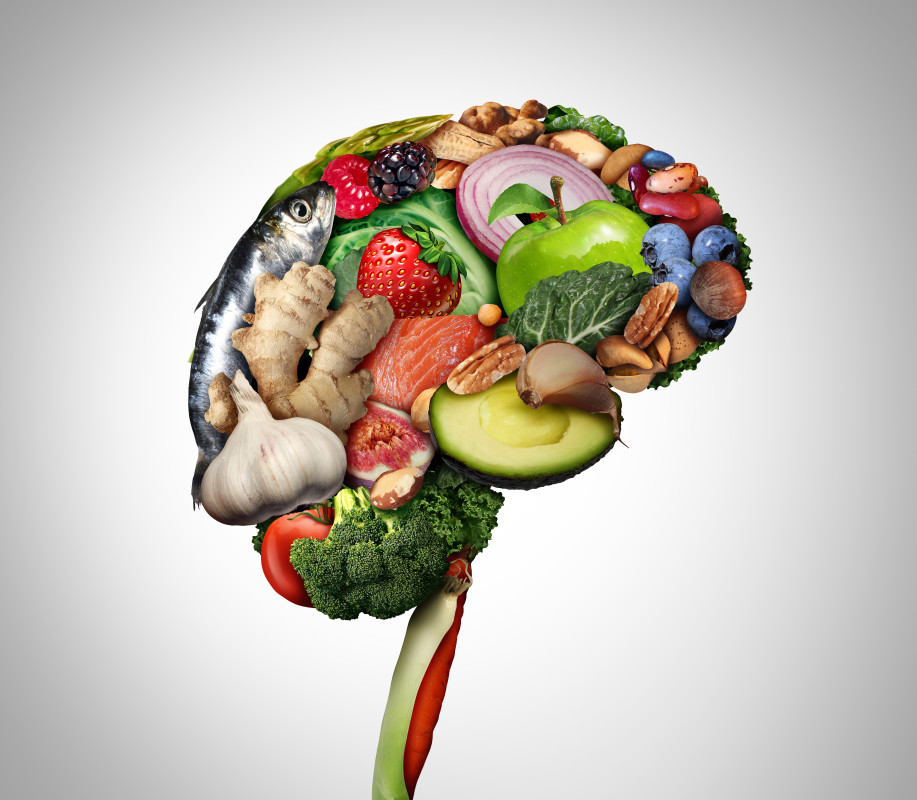
If you’re worried about developing dementia, you’re not alone: More people are afraid of dementia than cancer, according to a study in the European Journal of Ageing. It’s almost easy to see why: While both conditions are terrifying and potentially debilitating and deadly, with dementia, you also risk losing your memories of loved ones, your personality and all the beautiful parts of your mind that make you you. Not only is it painful for your loved ones to watch, it’s also devastating to experience firsthand.
For what it’s worth, however, you can take steps to reduce the likelihood of dementia, and having a sense of control over your brain health is empowering. Plus, some of those brain-healthy behaviors may be habits you already have, simply because you enjoy them—including eating tasty snacks. A new study indicates that eating this one thing daily may reduce your risk of dementia.
🩺 SIGN UP for tips to stay healthy & fit with the top moves, clean eats, health trends & more delivered right to your inbox twice a week 💊
Eating This Daily May Reduce Your Dementia Risk, According to Doctors
Let’s dive in. According to a more recent study in Nutrients, blueberries—with all their sweet and tart goodness—can protect against cognitive decline in at-risk individuals when their risk was identified early. So whether you’re craving an energizing smoothie, fruit bowl, oatmeal, cobbler or salad, consider throwing a handful of blueberries in there.
How Blueberries Lower Dementia Risk
Blueberries are brain-healthy in a few ways, actually. “Eating berries, particularly blueberries, may lower dementia risk by improving cognitive performance and influencing brain metabolism,” says Dr. David Perlmutter, MD, a board-certified neurologist and 6x New York Times bestselling author. “Problems with respect to brain metabolism directly increase dementia risk.”
Giving more insight into the study’s findings, Dr. Perlmutter says blueberries can enhance executive abilities in the brain, memory performance and more. This is thanks to the compounds anthocyanins and proanthocyanins, he continues, which target the brain’s ability to produce energy.
Blueberries are also rich in another particular set of compounds we need to thank for their health benefits: antioxidants.
“These antioxidants have powerful anti-inflammatory effects to help counteract inflammation in the brain,” says Catherine Gervacio, RND, a registered nutritionist and diet consultant for WOWMD. “Chronic inflammation is a risk factor for dementia and other neurodegenerative diseases.”
Related: Research Says You Can Lower Your Dementia Risk by 33% By Doing This One Thing
Are Other Berries Good for Brain Health?
The type of berry matters, Gervacio says, but she wouldn’t say one is necessarily better than others in terms of overall brain health. She lists benefits of four kinds:
-
Blueberries: The flavonoids and other antioxidants in blueberries make these great for your noggin.
-
Strawberries: Strawberries have a unique compound, fisetin, which has promising effects on brain aging and memory.
-
Raspberries: Tart and nutritious, raspberries are rich in ellagic acid, which helps reduce inflammation and protects cells from damage. They also have a ton of fiber, which is great for your digestive health, too.
-
Acai berries: These super-foods support healthy cholesterol levels and reduce inflammation, which can indirectly benefit brain health.
Dr. Perlmutter points out that the beneficial parts of blueberries, according to the study, were anthocyanins and proanthocyanins—which can be found in other berries. Particularly, black elderberries and cranberries, to name a couple.
“However, the evidence provided in this research points to blueberries as particularly effective, so other types of berries may need further investigation to confirm similar effects,” he says.
As far as the amount and frequency of berries to eat for brain health, it depends. Every person’s body is different and has different needs. However, Gervacio believes ½ cup to one cup of berries a day will do the trick. Looking at research, Dr. Perlmutter sits more at the lower end, ½ cup a day.
Related: ‘I’m a Cardiologist, and This Is the Summer Berry I Swear by for Heart Health’
Other Foods That Can Lower Dementia Risk
Why not add more neurologist-approved foods? Gervacio suggests nuts, seeds and fatty fish. The first two are high in antioxidants, vitamin E and healthy fats, she says, while the latter is rich in omega-3 fatty acids. All can improve cognitive function.
Dr. Perlmutter recommends foods that support metabolism, reduce insulin resistance and are rich in antioxidants. Besides the foods Gervacio mentions, he adds fruits in general, as well as leafy green vegetables and whole, gluten-free grains.
In other words, it sounds like a big salad with all those delicious ingredients is on this week’s menu.
Up Next:
Related: 50 Best Blueberry Recipes You Need To Try
Sources
EMEA Tribune is not involved in this news article, it is taken from our partners and or from the News Agencies. Copyright and Credit go to the News Agencies, email news@emeatribune.com Follow our WhatsApp verified Channel




